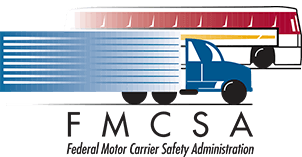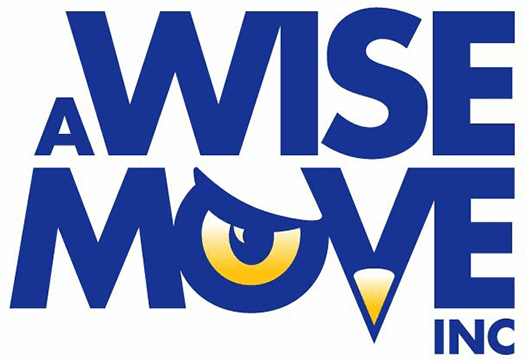This Move Is About You!
Do you feel as if you don’t know what you’re doing? Don’t know how to handle – or where to start? It is important to try to make arrangements for your move well in advance, at least four to six weeks before the moving date. This allows you to control your move, and still be able to deal with any changes or unexpected events that could impact your plans.
Start With The Best
Put the experienced moving professionals at A Wise Move to work for you. And your move will be accomplished safely, swiftly and professionally. Whether you’re moving across the street, across town or across the country, leave the work and the worry to us. We have the resources and the personnel to make this move a positive and successful experience.
Choosing the right mover is not a simple task. When moving, you want to be sure that your belongings will be in good hands until they reach your new home. You also want to be sure that the costs will not skyrocket in the end, or that you will have to wait too long before your belongings are finally delivered to you.
When choosing a moving company for your move make sure you deeply investigate each and every candidate. Don’t just jump at the lowest price! You need to investigate the estimate to find out if it’s realistic. As they say, if it sounds too good to be true, it probably is!
Ask a friend. We also suggest that you talk to your friends and coworkers. Get their unbiased opinions of movers they have worked with. Learn from their experiences. No one wants to recommend a mover to a friend – and have the move go badly. At A Wise Move, we are proud to say that a very large percentage of our new customers come to us from satisfied, past customers.
Use the following topics to guide you on your research:
Licenses And Insurance:
When choosing a mover make sure to verify his license with your local DOT office. Every moving company has to be licensed and insured. There are different types and levels of licensing, and the rules are different from state to state.
- Local Moves: If you are moving within a state, make sure the mover you are considering is licensed by that state’s Department of Transportation. A call to your local state association can help determine if a mover is licensed. If you are moving to a different state, check to make sure the mover is licensed by the Federal Motor Carrier and Safety Administration.
- Interstate Moves: Interstate moving companies have two additional criteria they are required to meet:
- Publish their tariffs or price list and make it available to anybody who requests a copy.
- Participate in a dispute settlement program and to offer neutral arbitration in the event a dispute arises. A dispute may arise in the event loss or damage happens to a shipment while in the hands of the mover.
- Workers’ Compensation Insurance: Another criterion to consider when choosing a moving company is whether it carries Workers’ Compensation Insurance. Such coverage is required by the DOT. This adds to the cost of doing business but it protects you, so make sure you only choose a company that is covered.
- Cargo Insurance: Make sure the mover really carries cargo insurance and gives you your options. The standard coverage the moving company is liable for is .60 cents on the pound for damages. Good moving companies point this out on the phone before you book.
Better Business Bureau record:
Check with the Better Business Bureau if the moving company has more than a few unresolved complains filed against them. Local Better Business Bureau offices keep records on companies registered in the state. Moving company that has more then few unresolved complaints should be avoided.
Remember – even responsible moving companies may have a few complaints, because the more moves they handle the higher is the chance something will go wrong. But their record with the Better Business Bureau should show that they have a satisfactory rating and that they respond to and resolve complaints.
Ask if the company is a member of the state moving and storage association in the state in which they are based or a member of the American Moving & Storage Association (AMSA). A reputable company should be a member of one or the other.
We are proud members of both.
Place Of Business:
When choosing a mover make sure their place of business actually exists. Beware of companies who provide no business address on their website, business documents, or a company that is hesitant to provide you with their physical business address. It is important that you know where to track the company down if you have a problem.
Consider visiting the moving company’s office before you make your final choice. You can learn a lot about how your shipment will be treated by visiting the company.
It is very important to make sure that they have their own trucks and the employees for them, many movers subcontract the moves and the quality can never be assured. Make sure they are not a broker.
- Residential Address: A few movers operate legitimately from a residential address. The important thing is that he actually is located there and not using a fictitious address to make you think he is.
- Yellow Pages: Another thing worth checking is if the moving company was listed in last year’s Yellow Pages. You would expect a legitimate new company not to be listed there. But as a matter of precaution, keep in mind that some moving companies had their DOT license revoked. Those companies might try to operate under a new name or the name of another licensed mover.
- On The Internet: the process is a little different. Of course, you can simply search for “movers.” But be a little careful. A company with one truck can look as impressive on the web as a national carrier with fleets of trailers. While you’re on a mover’s website, look for testimonials, a list of clients, and any other information about their experience and credentials.
Sales Personnel:
A universal advice: never listen to sales personnel who tell stories. A high-quality moving company with a good reputation doesn’t need to knock the competition, or to criticize other moving companies in an attempt to make itself look better.
Be wary of high-pressure tactics from telemarketers. This could be a ploy simply to get a sales person into your home to give you an estimate. Be careful, do research and decide who to invite into your home, based on references. Always remember that the price of the moving estimate should never be the deciding factor. The reputation of the moving company goes a long way.
Also, if you would like an in home estimate, and the moving company is not willing to come out for free, hang up and find another mover.
In addition, you should be able to meet or talk to the owner of the company. If you can talk to the owner of the business, even if only by phone, you will be able to develop a feeling of confidence that he is experienced and capable enough to assure a professional move.
Important Documents:
If you are moving to a different state you need to receive important documentation from your mover. The documents you need to receive from your mover are:
- An “Order for Service” signed by your mover.
The Order for Service protects you by spelling out the agreement between you and your mover regarding the dates the shipment will be loaded and delivered, the estimated cost, and (if you are moving to a different state) the fact that the mover can only collect 110% of the estimate at the time of delivery.
- A written estimate with an itemized breakdown of all charges that makes up the estimate for your moving cost.
Prior to the move date, insist on an in-home visual inspection of the goods you are moving. Accurate estimates can seldom be provided over the telephone. Remember: estimates given over the phone in most cases will be lower then the actual cost of your move.
It all starts with a phone call or an inquiry online. Our estimators are trained and certified. They are available 7 days a week to help you determine your needs – at no cost or obligation to you. And they will also assist you with any problems that arise before, during and after your move. You are not alone in this process. We are with you – every step of the way.
If you are moving interstate, you should read and understand all of the information you will receive. Don’t hesitate to ask questions. In addition to brochures explaining their various services, moving companies should give you a copy of a consumer booklet entitled Your Rights and Responsibilities When You Move and information regarding the mover’s participation in a Dispute Settlement Program. In addition, the Federal Motor Carrier Safety Administration (FMCSA) mandates distribution of the consumer booklet, as well as the requirement that movers offer shippers neutral arbitration as a means of settling disputes that may arise concerning loss or damage on household goods shipments.





